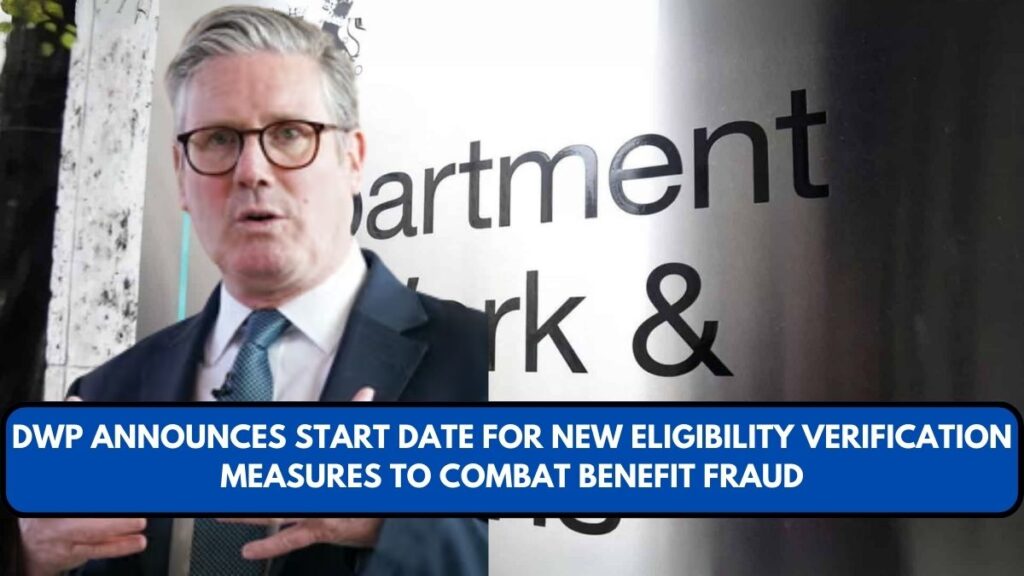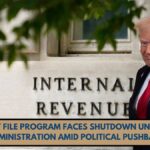The UK Department for Work and Pensions (DWP) is moving forward with sweeping new eligibility verification measures aimed at clamping down on benefit fraud. Starting in 2025, under provisions laid out in the Public Authorities (Fraud, Error and Debt) Bill, the DWP will gain expanded powers to monitor bank account data and recover benefit overpayments—without the need for a court order.
These changes are designed to save the UK government up to £9 billion by 2028, according to official estimates.
What Are Eligibility Verification Notices (EVNs)?
The cornerstone of the new measures is the introduction of Eligibility Verification Notices (EVNs). As explained in Schedule 3 of the bill, EVNs empower the DWP to compel financial institutions—such as banks and building societies—to check specific customer accounts for signs of ineligibility.
Key indicators include:
- Account balances above £16,000, which may disqualify individuals from certain means-tested benefits.
- Unusual transaction patterns suggesting undeclared income or fraud.
Importantly, the DWP will not have open access to claimant accounts. Instead, banks will use automated systems to flag accounts that meet the criteria and report only relevant findings.

How Will This Affect Benefit Claimants?
While the changes are focused on fraud prevention, they are also likely to impact law-abiding claimants—particularly those unaware of financial thresholds that could disqualify them.
Here’s what claimants should know:
- The £16,000 savings cap still applies to means-tested benefits like Universal Credit and Housing Benefit.
- Claimants will not be notified in advance when their accounts are checked.
- If red flags are raised, the DWP may investigate further or suspend benefit payments.
The policy is designed to reduce fraud but critics argue that it may unfairly target vulnerable individuals. The Information Commissioner’s Office (ICO) has acknowledged the need for robust oversight, urging proportionality in implementation.
Direct Deductions Without Court Approval
Another controversial provision allows the DWP to recover overpaid benefits directly from individuals’ bank accounts or earnings—without needing to obtain a court order.
This change is part of a broader goal to streamline debt recovery while reducing administrative burdens. However, watchdogs like The Guardian have raised concerns over the lack of appeal or dispute mechanisms.
To mitigate risk, the DWP has promised to carry out affordability and vulnerability assessments before initiating deductions.
Driving License Suspensions for Debt Over £1,000
One of the more dramatic penalties under the new framework is the suspension of a claimant’s driving license if they owe over £1,000 in unpaid welfare debts.
The aim is to encourage repayment and deter fraud, but civil liberties groups argue that this could disproportionately affect people in rural areas or those who rely on their vehicles for work.
You can read the full policy debate covered by The Guardian.
Safeguards and Public Response
To address concerns, the government has outlined several safeguards:
- Limited scope of bank data shared—only relevant flags are reported.
- No mass surveillance—only selected accounts will be examined.
- Data protection compliance under scrutiny from the ICO and Parliament.
Still, public opinion remains divided. Critics fear the policy could create a climate of suspicion among legitimate benefit recipients, while supporters argue it is necessary to preserve the integrity of the welfare system.

What You Should Do as a Claimant
To stay compliant and avoid unintentional fraud flags:
- Regularly check that your savings do not exceed benefit thresholds.
- Report any changes in financial status or household income immediately via the DWP’s website.
- If contacted by DWP for clarification, respond promptly and provide accurate information.
Final Thoughts
The DWP’s latest anti-fraud measures mark a significant evolution in how welfare compliance is monitored in the UK. While the government hopes to close loopholes and recoup billions, the rollout of these powers will require careful oversight to avoid unjust consequences for honest claimants.
This article has been carefully fact-checked by our editorial team to ensure accuracy and eliminate any misleading information. We are committed to maintaining the highest standards of integrity in our content.

Himanshu Sharma writes for Weekend Spy, focusing on recruitment, government schemes, and current affairs. He is dedicated to making complex information accessible to readers.
Himanshu enjoys playing chess, hiking, and trying new recipes, always seeking ways to combine his love for writing with his passion for exploration. Connect with Drop him an email at [email protected].







